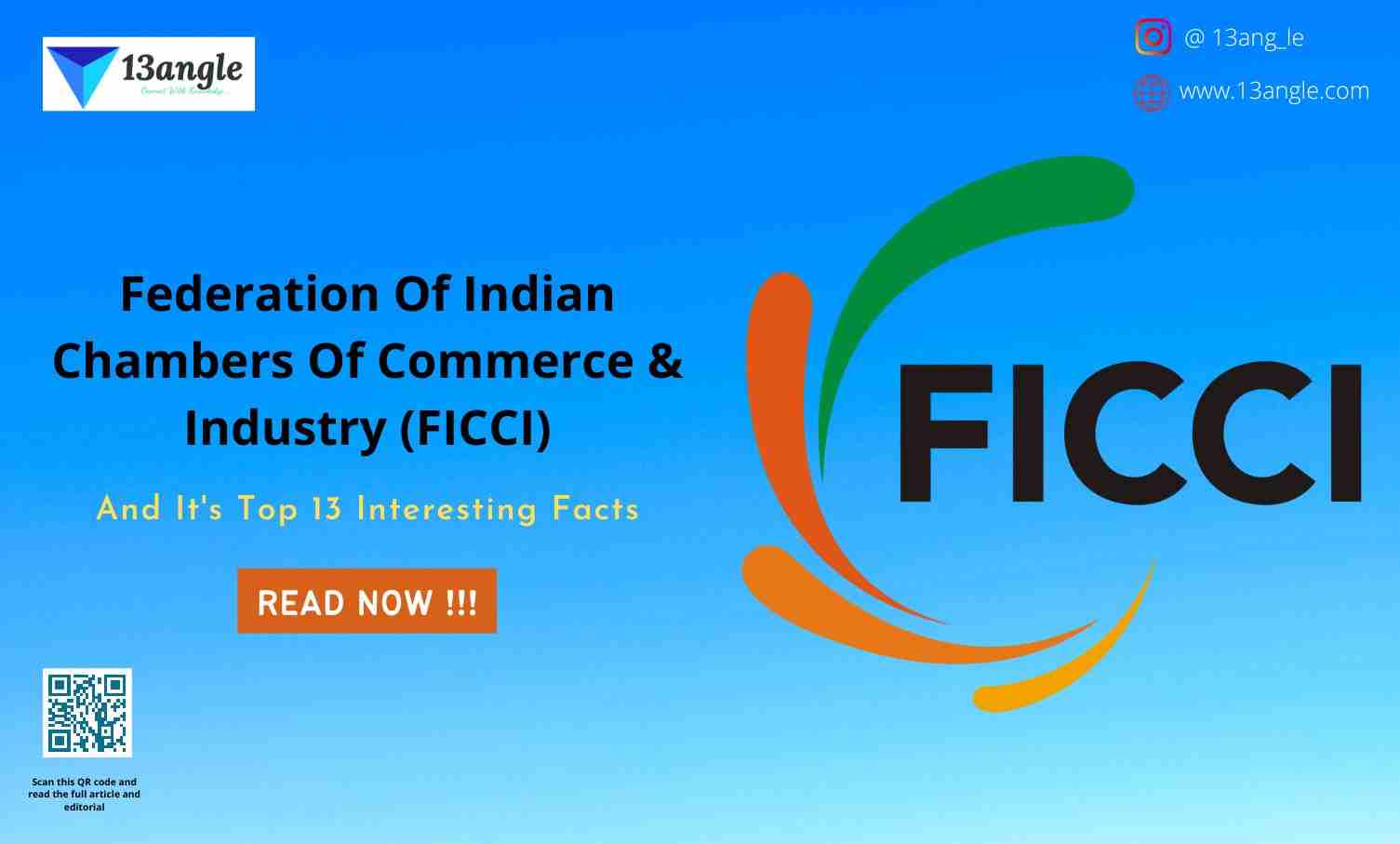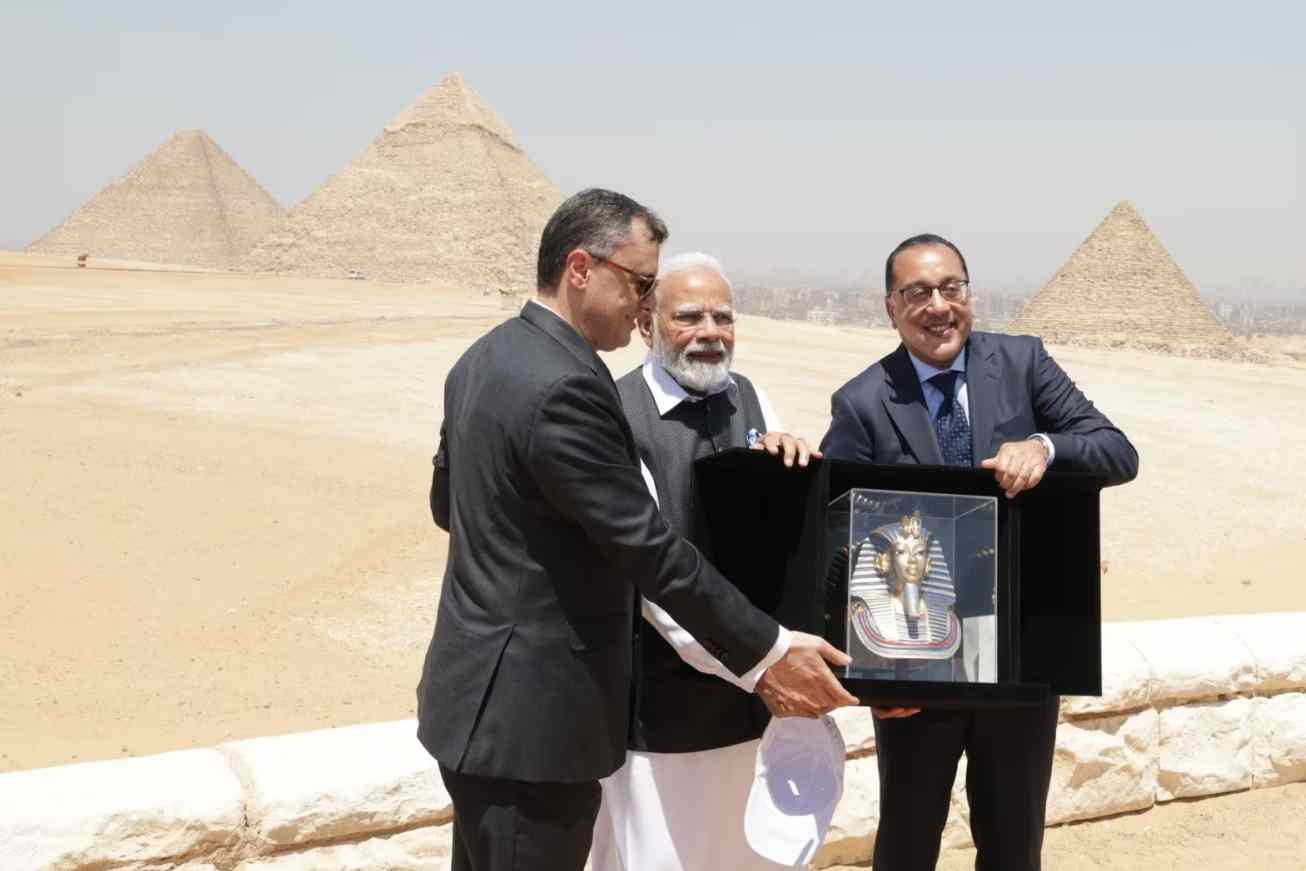
Introduction
Prime Minister Narendra Modi’s visit to Egypt holds tremendous significance in strengthening the bilateral relations between India and Egypt. As his first official trip to Egypt since assuming office as Prime Minister, this visit represents a pivotal moment in the growing ties between the two nations. With a strong emphasis on expanding cooperation in various sectors, including trade, economic engagement, and cultural diplomacy, this visit seeks to deepen and diversify the relationship between India and Egypt. Moreover, it provides valuable insights into the future trajectory of the bilateral relationship, underscoring India’s efforts to forge partnerships beyond the traditional Western bloc.
Modi’s visit to Egypt comes at a crucial time, following Egyptian President Abdel Fattah el-Sisi’s visit to India in January, where he was honoured as the chief guest at India’s 74th Republic Day celebrations. President el-Sisi’s visit laid the groundwork for elevating bilateral relations between the two countries to a strategic level, demonstrating the mutual commitment to strengthening ties. Modi’s visit builds upon this momentum, further solidifying the foundations of the India-Egypt partnership.
The objective of Modi’s visit is not only to maintain the positive momentum in bilateral relations but also to explore new avenues of cooperation. Both countries are keen on expanding their economic engagement and trade relations, leveraging each other’s strengths and resources. Egypt, with its strategic location and well-developed infrastructure, serves as an important gateway for India to access markets in the Middle East and North Africa (MENA) region. On the other hand, India offers a vast consumer market, skilled workforce, and expertise in sectors such as information technology, pharmaceuticals, and renewable energy, which can contribute to Egypt’s economic growth and development.
In addition to economic cooperation, cultural diplomacy plays a significant role in Modi’s visit to Egypt. Both India and Egypt boast rich cultural heritages and ancient civilizations, which serve as a strong foundation for cultural exchanges and collaborations. By promoting cultural diplomacy, the visit aims to foster mutual understanding, appreciation, and friendship between the people of India and Egypt. This cultural engagement not only enhances people-to-people connections but also strengthens the overall bilateral relationship, reinforcing the shared values of pluralism, diversity, and interfaith harmony.
Moreover, Modi’s visit to Egypt reflects India’s broader foreign policy approach of diversifying partnerships and reaching out to countries beyond the traditional Western bloc. India is actively expanding its global footprint and seeking to forge strategic alliances with nations across different regions. By engaging with Egypt, a key regional player in the MENA region and the Arab world, India aims to enhance its presence and influence in the region. This visit serves as a stepping stone for further collaboration and cooperation with Egypt, as well as other countries in the region.
Prime Minister Modi’s visit to Egypt holds immense importance in strengthening the bilateral relations between India and Egypt. It represents a crucial step in deepening and diversifying the partnership between the two countries. Through expanding cooperation in various sectors, including trade, economic engagement, and cultural diplomacy, this visit seeks to foster a stronger and more mutually beneficial relationship. Furthermore, it underscores India’s efforts to forge partnerships beyond the traditional Western bloc and expand its presence in the MENA region. Overall, Modi’s visit to Egypt highlights the shared commitment of India and Egypt to building a strategic and enduring partnership based on mutual respect, cooperation, and shared aspirations for peace and prosperity.
Historical Significance And Cultural Ties
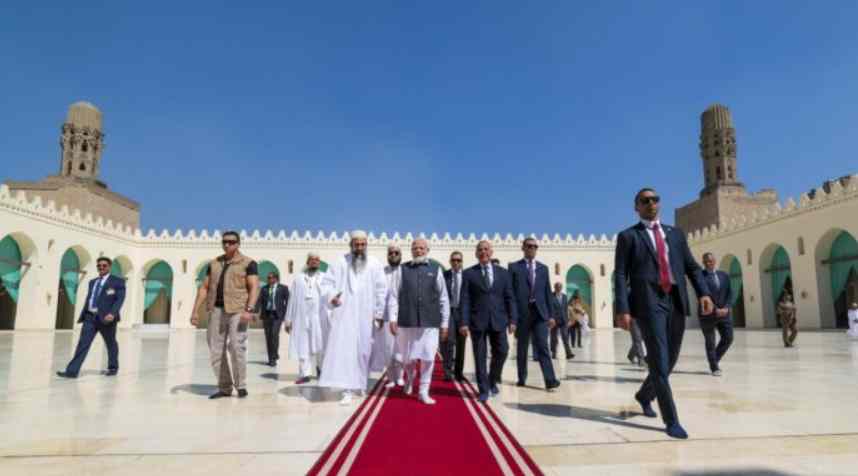
Egypt and India have a long-standing historical and cultural relationship that dates back centuries. The historical significance of Egypt, with its ancient civilization and Islamic heritage, resonates deeply with India, a country known for its diverse cultural tapestry and rich history.
One of the notable aspects of this historical connection is the shared membership of both countries in the Non-Aligned Movement (NAM). The NAM was formed in 1961 as a global forum comprising 120 developing countries that advocated for non-alignment with major power blocs during the Cold War. Both Egypt and India played key roles as founding members of this movement, emphasizing their shared commitment to independence, sovereignty, and non-interference in the affairs of other nations.
The visit by Prime Minister Modi to Egypt reinforces and revitalizes the historical ties between the two nations. It signifies the mutual recognition of the historical significance of their respective cultures and civilizations. India, with its own ancient civilization and diverse cultural heritage, deeply appreciates the rich historical tapestry of Egypt. This visit serves as a testament to India’s respect and admiration for Egypt’s contributions to world history and its status as a cradle of civilization.
Furthermore, Egypt’s Islamic heritage holds great importance for India, particularly for its Muslim community. The visit by Prime Minister Modi to the Al-Hakim Mosque, one of Egypt’s oldest mosques, underscores the shared cultural and religious bonds between the two nations. The mosque, with its architectural grandeur and historical significance, represents the enduring legacy of Islamic civilization. By paying respects at this sacred site, Modi acknowledges and celebrates the Islamic heritage that Egypt embodies, fostering a sense of unity and brotherhood between the two countries.
In addition to historical ties, Egypt and India share cultural connections that have influenced various aspects of their societies. Ancient Egypt and the Indus Valley Civilization, both flourishing around 2500 BCE, developed unique and advanced societies during similar time periods. While these civilizations may have existed independently, there is evidence of trade and cultural exchange between the two regions. The exchange of goods, ideas, and knowledge played a role in shaping their respective cultures.
The cultural ties between Egypt and India are also reflected in their artistic traditions. Both countries have a rich history of artistic expression, whether through architecture, sculpture, painting, or literature. The influence of ancient Egyptian art can be seen in certain Indian architectural styles, particularly in temple structures. The use of intricate carvings, symbolic motifs, and grandeur in Indian temple architecture bears similarities to ancient Egyptian temple designs.
Furthermore, the trade routes that connected the Mediterranean and the Indian Ocean facilitated cultural exchange between Egypt and India. The maritime Silk Road, for instance, allowed for the flow of goods, ideas, and religions between these two regions. Egyptian artefacts, such as textiles, pottery, and precious stones, have been found in ancient Indian archaeological sites, providing evidence of the historical trade links and cultural interactions.
Today, Egypt and India continue to foster cultural ties through various initiatives, including cultural exchange programs, collaborations in the fields of art and archaeology, and tourism. These efforts aim to deepen mutual understanding, promote cultural appreciation, and strengthen the bonds between the peoples of both nations.
The historical significance and cultural ties between Egypt and India have laid the foundation for a strong relationship that spans centuries. Their shared membership in the Non-Aligned Movement, the mutual appreciation of their historical civilizations, and the cultural connections they have maintained contribute to a deep sense of respect and admiration. By acknowledging and nurturing these ties, both countries can further strengthen their relationship and continue to learn from and celebrate their rich historical and cultural heritage.
Strengthening Economic Cooperation
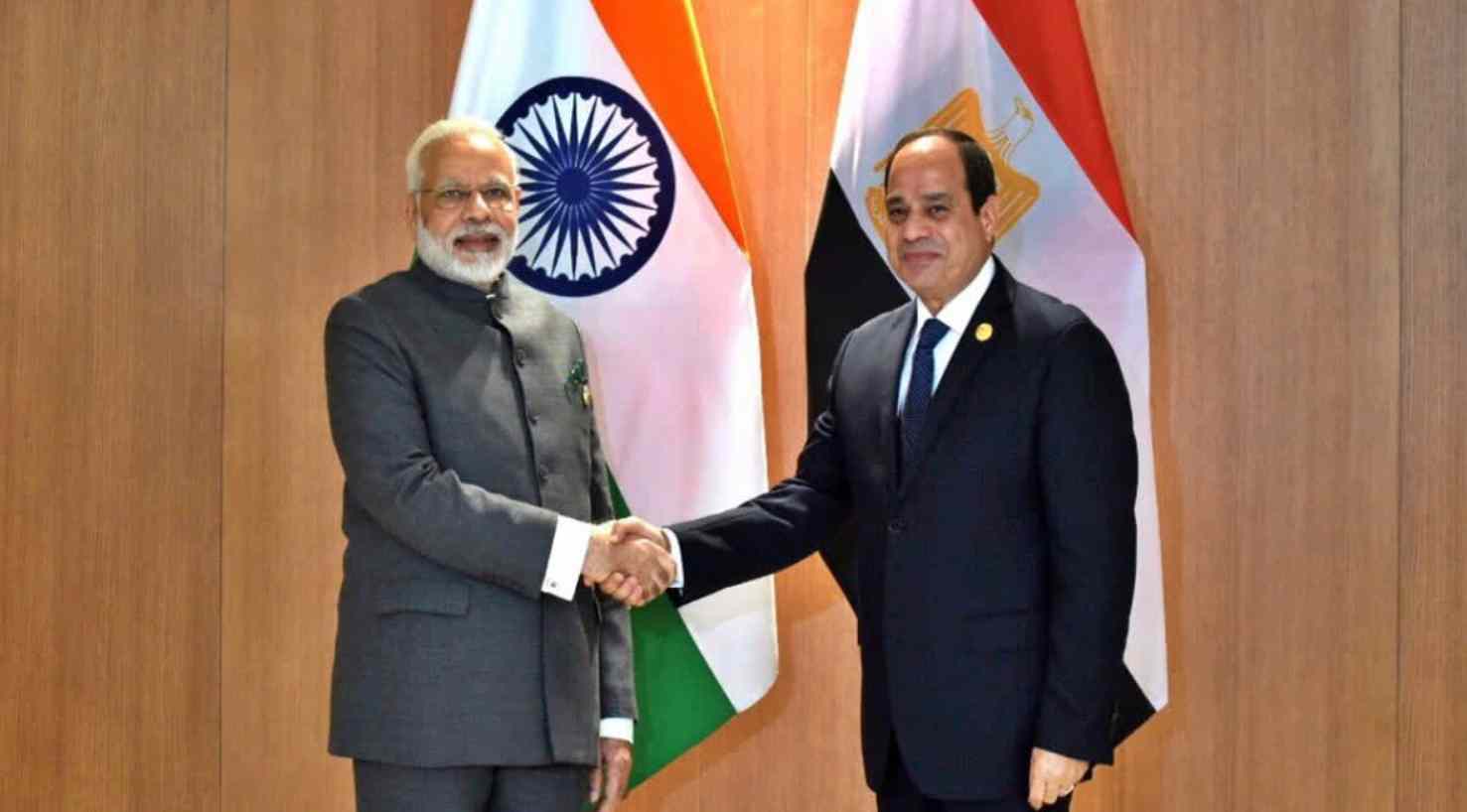
During Prime Minister Modi’s visit, efforts to strengthen economic cooperation between India and Egypt will take centre stage. Both nations recognize the potential for mutually beneficial collaboration in various sectors, including trade, investment, energy, infrastructure, tourism, and agriculture.
One of the key areas of focus is bilateral trade. The visit will provide an opportunity to explore avenues for expanding trade volume and diversifying the range of traded goods and services. India and Egypt can identify specific sectors with high growth potential, such as pharmaceuticals, textiles, automotive, IT services, and chemicals, and work towards enhancing trade in these areas. Both countries can also engage in trade promotion activities, such as trade exhibitions, business delegations, and matchmaking events, to facilitate connections between Indian and Egyptian businesses.
In addition to trade, investment cooperation will be another important aspect of strengthening economic ties. Egypt offers a favourable investment climate, supported by economic reforms, infrastructure development, and a skilled workforce. Prime Minister Modi’s visit can serve as a platform to encourage Indian companies to invest in Egypt, particularly in sectors such as manufacturing, renewable energy, construction, and tourism. Bilateral investment promotion and protection agreements can be signed to provide a framework for facilitating investments and ensuring the protection of investors’ rights.
Collaboration in the energy sector is also significant. Egypt possesses substantial natural gas reserves, while India has a growing demand for energy. The visit can facilitate discussions on energy cooperation, including the possibility of long-term supply agreements, joint ventures in oil and gas exploration, and technology transfers in renewable energy. Such collaboration can enhance energy security for both countries and contribute to sustainable development.
Infrastructure development is another area of potential cooperation. Egypt’s ambitious infrastructure projects, including the Suez Canal Economic Zone and the New Administrative Capital, present opportunities for Indian companies to participate in construction, engineering, and project management. The visit can explore avenues for collaboration in these areas, including technology transfers, capacity building, and sharing of best practices.
Tourism can also be a significant contributor to economic cooperation. India and Egypt boast rich cultural heritage, historical sites, and diverse tourism offerings. Strengthening ties in the tourism sector can involve promoting tourism exchanges, facilitating travel and visa processes, and fostering greater people-to-people contacts. Encouraging direct flights between Indian and Egyptian cities can further boost tourism flows.
Lastly, agricultural cooperation can be explored. Both countries have expertise in agriculture and face similar challenges, such as water management and food security. Collaborative efforts can focus on sharing agricultural technologies, research and development, and enhancing agricultural productivity. Joint ventures and knowledge sharing in areas like organic farming, post-harvest management, and agricultural machinery can be mutually beneficial.
Prime Minister Modi’s visit to Egypt aims to deepen and diversify the economic cooperation between India and Egypt. By leveraging Egypt’s strategic location and bilateral partnerships, India can access key markets in Africa, Asia, and Europe, contributing to regional stability and prosperity. Strengthening economic ties across sectors such as trade, investment, energy, infrastructure, tourism, and agriculture can create a solid foundation for a mutually beneficial and enduring partnership between the two nations.
Countering China's Influence
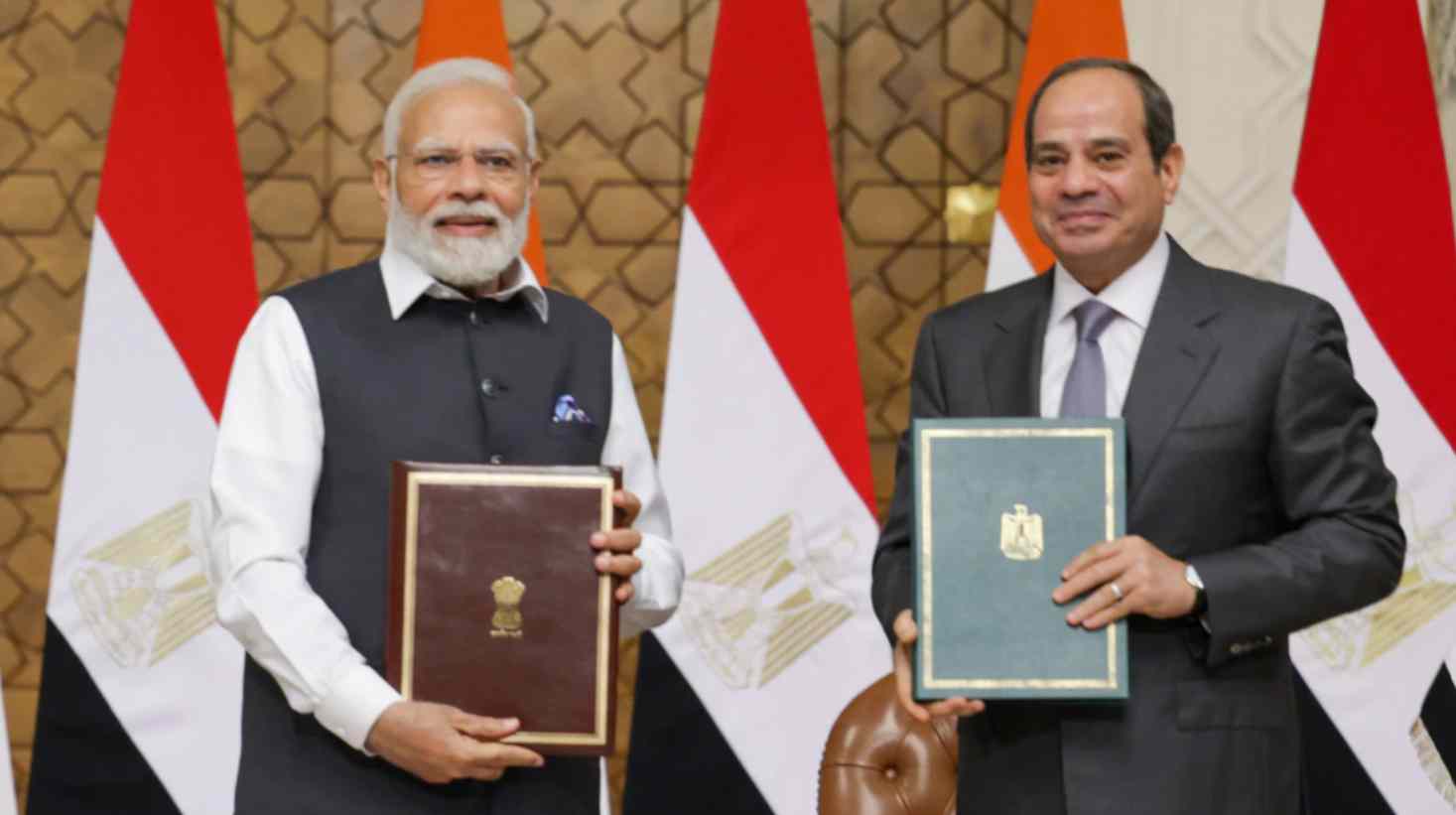
Countering China’s influence is a key aspect of Prime Minister Modi’s visit to Egypt, as India seeks to maintain its own presence and influence in the region. China’s growing economic and strategic engagements in Egypt and the wider Arab world have raised concerns for India, prompting a need to expand its own economic and strategic partnerships.
China currently surpasses India in terms of bilateral trade with Egypt. By strengthening ties with Egypt, India aims to balance China’s economic influence in the country and the region. This can be achieved by enhancing bilateral trade, diversifying the range of traded goods and services, and increasing Indian investments in key sectors. By expanding economic engagements, India can create a stronger economic foothold and reduce its dependency on China in the region.
Furthermore, strategic partnerships and collaborations between India and Egypt can contribute to countering China’s influence in the Arab world. Egypt’s historical and cultural ties with the Arab nations, along with its geopolitical significance, make it an important player in regional affairs. By supporting Egypt’s aspirations to join BRICS, India aims to counterbalance China’s dominance within the organization. Strengthening bilateral ties with Egypt aligns with India’s objective of diversifying partnerships and countering China’s influence on multilateral platforms.
In addition to economic and strategic cooperation, cultural diplomacy can also play a role in countering China’s influence. India and Egypt share historical and cultural connections that can be leveraged to strengthen people-to-people ties and foster greater understanding and cooperation. Promoting cultural exchanges, educational collaborations, and tourism between the two countries can help showcase India’s soft power and enhance its influence in the region.
It is important to note that countering China’s influence is not aimed at isolating or confronting China. Instead, it is about safeguarding India’s own interests and maintaining a balance of power in the region. By expanding economic and strategic engagements with Egypt, India aims to create a more multipolar and balanced environment that allows for healthy competition and cooperation.
Exploring New Avenues Of Cooperation
During Prime Minister Modi’s visit to Egypt, there is a strong emphasis on exploring new avenues of cooperation beyond traditional sectors. This approach reflects the mutual desire of both nations to diversify their partnership and leverage each other’s strengths in emerging fields. The discussions between Prime Minister Modi and Egyptian leaders are expected to centre around areas such as technology, innovation, healthcare, renewable energy, and infrastructure development.
Technology and innovation collaboration holds immense potential for both countries. India, known as a global technology hub, has expertise in areas such as information technology, software development, and digital solutions. Egypt, on the other hand, has been making strides in fostering innovation and entrepreneurship. By exchanging knowledge and expertise, India and Egypt can promote technology transfer, joint research and development, and collaboration in emerging fields like artificial intelligence, blockchain, cybersecurity, and e-governance. Such partnerships can drive economic growth, enhance competitiveness, and contribute to job creation in both countries.
Healthcare cooperation is another promising area of exploration. India is renowned for its medical expertise, pharmaceutical industry, and affordable healthcare solutions. Egypt, with its large population and growing healthcare demands, can benefit from India’s experience in healthcare delivery, telemedicine, and capacity building. Collaborative efforts can include knowledge sharing, training programs for healthcare professionals, joint research projects, and the establishment of healthcare centres. These initiatives can strengthen healthcare systems, improve access to quality healthcare, and contribute to the well-being of the people in both nations.
Renewable energy is a critical area where India and Egypt can collaborate. Both countries have set ambitious renewable energy targets and are actively investing in solar and wind power projects. By sharing experiences, best practices, and technological advancements, India and Egypt can accelerate the transition to clean energy and address climate change challenges. Joint ventures, research collaborations, and capacity-building initiatives can foster renewable energy generation, energy efficiency, and energy storage solutions.
Infrastructure development is another field where India’s expertise can complement Egypt’s ambitious projects. India’s experience in building world-class infrastructure, including roads, railways, ports, and smart cities, can contribute to Egypt’s ongoing infrastructure initiatives such as the New Administrative Capital and the Suez Canal Economic Zone. Collaborative efforts can involve technology transfers, project management, and knowledge sharing, enabling Egypt to benefit from India’s successful infrastructure development models.
Moreover, the visit can also explore avenues for cultural and educational exchanges. Promoting student exchange programs, academic collaborations, and cultural events can enhance people-to-people ties, foster mutual understanding, and deepen the cultural bonds between India and Egypt.
Cultural Diplomacy And People-To-People Exchanges
Cultural diplomacy and people-to-people exchanges form the bedrock of Prime Minister Narendra Modi’s visit to Egypt. Through cultural diplomacy, India aims to foster mutual understanding, appreciation, and respect between the two nations. By showcasing India’s rich heritage and traditions, as well as acknowledging Egypt’s ancient civilizations, the visit emphasizes the shared cultural bonds that connect the people of India and Egypt.
During his visit, Prime Minister Modi will engage with the Indian community in Egypt, recognizing their contributions and role as ambassadors of India’s culture and values. This interaction serves to strengthen the bond between the two nations, highlighting the Indian diaspora as a bridge that connects India and Egypt at a personal and cultural level.
Promoting cultural exchanges, such as art exhibitions, film festivals, and cultural performances, further deepens the understanding and appreciation of each other’s traditions and customs. These exchanges create opportunities for Egyptians and Indians to explore and embrace the diverse aspects of their respective cultures, fostering a sense of curiosity, respect, and admiration.
Through cultural diplomacy and people-to-people exchanges, barriers are broken down, stereotypes are challenged, and a foundation for lasting friendships and collaborations is established. Such exchanges facilitate dialogue, cooperation, and mutual growth in various fields, including education, tourism, and the arts.
Prime Minister Modi’s visit to Egypt underscores India’s commitment to promoting cultural diplomacy to build bridges of understanding and strengthen bilateral relations. By celebrating the rich heritage of both nations, the visit sets the stage for a deeper connection between the people of India and Egypt, transcending geographical boundaries and fostering a sense of shared humanity.
As the cultural ties between India and Egypt deepen, the seeds of friendship sown during this visit will continue to grow, creating a legacy of cooperation, appreciation, and collaboration for generations to come. Through cultural diplomacy and people-to-people exchanges, India and Egypt will forge a stronger bond, united by their shared values, diverse cultures, and a mutual desire for peace and prosperity.
Modi's Visit To Al-Hakim Mosque In Egypt:
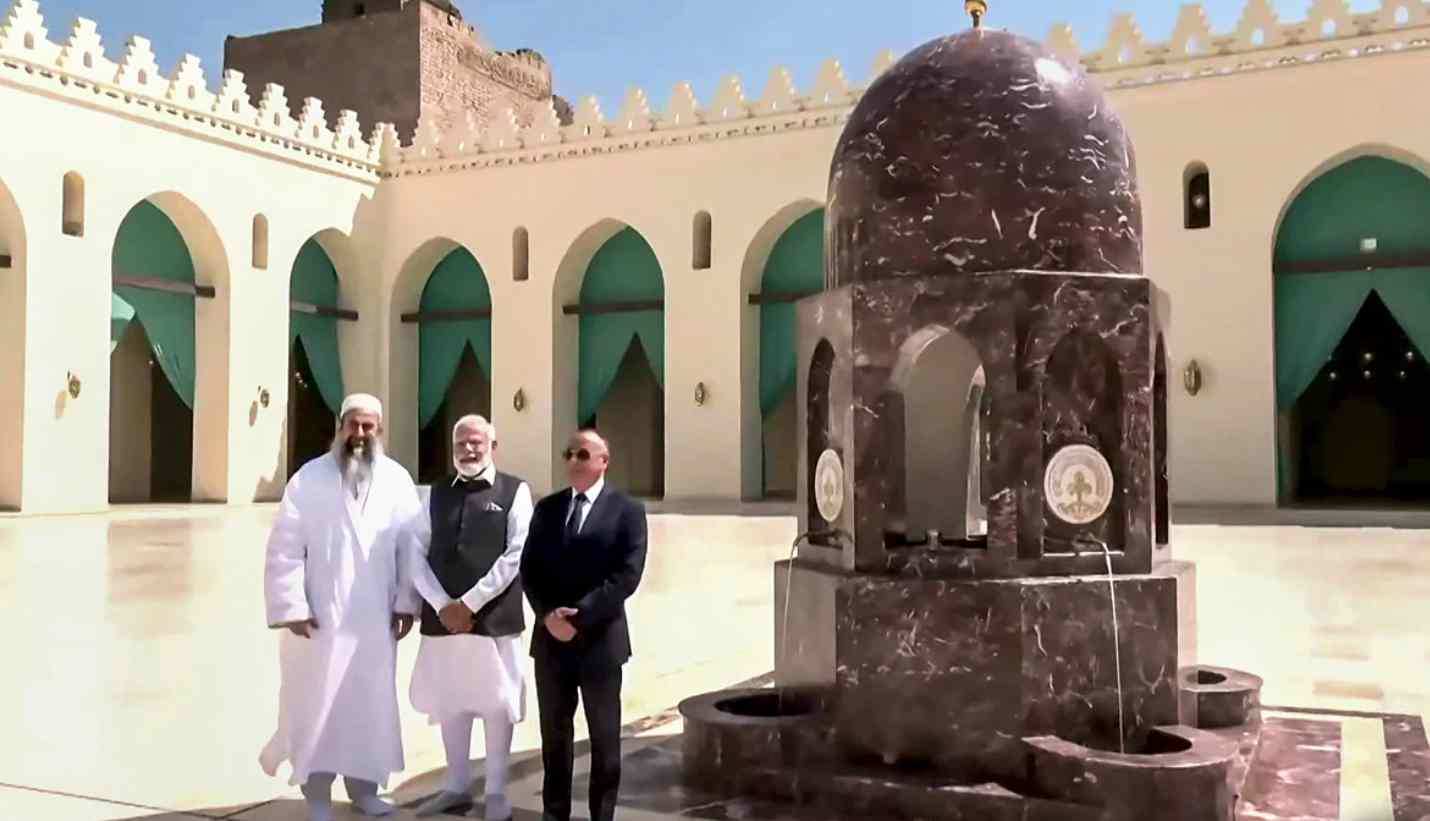
Prime Minister Narendra Modi’s visit to the historic Al-Hakim Mosque in Cairo holds special significance for India’s Dawoodi Muslim community, particularly the Dawoodi Bohras. The mosque’s rich history and architectural grandeur have deep connections to the Dawoodi Bohras, a prominent Muslim sect with a significant presence in India, especially in Modi’s home state of Gujarat. This visit reflects Modi’s longstanding association with the Dawoodi Bohra community and symbolizes the strong bond between them.
The Al-Hakim Mosque is one of Egypt’s oldest mosques and stands as a testament to the country’s ancient civilization and Islamic heritage. With a history spanning over a millennium, this mosque holds immense historical and cultural significance. Modi’s visit to this sacred site emphasizes the importance of preserving and promoting cultural ties between India and Egypt, highlighting the shared heritage between the two nations.
The Dawoodi Bohra community, tracing its roots back to the Fatimid dynasty, played a vital role in the renovation of the Al-Hakim Mosque during the 1970s. Due to their strong historical connections to Egypt, the Dawoodi Bohras undertook two renovation projects to restore the mosque’s grandeur. This act of preserving cultural heritage showcases their commitment to nurturing the shared history between India and Egypt and reinforces the cultural ties between the two communities.
Gujarat, Modi’s home state, is home to a significant population of Dawoodi Bohras. For centuries, this community has been an integral part of Gujarat’s social fabric. They have actively contributed to various sectors, including trade and philanthropy. The Dawoodi Bohras’ settlement in India dates to the 11th century, and their deep-rooted presence has fostered a strong connection between the community and the state of Gujarat. Recognizing their contributions, Modi has maintained a close relationship with the Dawoodi Bohra community throughout his political career.
Modi has long-standing ties with the Dawoodi Bohra community, expressing gratitude for their support during his tenure as Chief Minister of Gujarat. He has actively engaged with the community, participating in their religious and cultural events and paying respects to their spiritual leaders. Modi’s visit to the Al-Hakim Mosque further solidifies his commitment to nurturing the relationship between India and the Dawoodi Bohra community, highlighting their special bond.
Modi’s visit to the Al-Hakim Mosque showcases India’s commitment to promoting cultural diplomacy. By acknowledging the historical significance of the mosque and recognizing the Dawoodi Bohra community’s contributions, Modi emphasizes the importance of interfaith harmony and mutual respect. This visit strengthens the bonds of friendship and understanding between India and Egypt, fostering a message of unity and respect among different faiths and cultures.
Prime Minister Modi’s visit to the Al-Hakim Mosque in Egypt holds immense significance for India’s Dawoodi Muslim community, particularly the Dawoodi Bohras. This visit reflects Modi’s close relationship with the community and his commitment to fostering cultural ties between India and Egypt. By acknowledging the historical and cultural importance of the mosque, Modi showcases India’s appreciation for its ancient civilizations and Islamic heritage. The visit strengthens the bonds between India and Egypt, promoting harmony, unity, and mutual respect among different faiths and cultures.
Conclusion
Prime Minister Narendra Modi’s visit to Egypt, particularly his visit to the Al-Hakim Mosque, marks a pivotal moment in the strengthening of bilateral relations between India and Egypt. This visit holds immense potential for expanding cooperation and collaboration in various sectors, ranging from trade and economy to technology and culture.
By leveraging Egypt’s geostrategic importance, India aims to counterbalance China’s influence in the region and solidify its own position as a key player. The visit signifies India’s commitment to regional stability and prosperity, fostering a mutually beneficial partnership between the two nations.
Furthermore, the visit to the Al-Hakim Mosque holds deep significance for India’s Dawoodi Muslim community, especially the Dawoodi Bohras. It demonstrates Prime Minister Modi’s close relationship with the community and his dedication to fostering cultural ties between India and Egypt. By recognizing the historical and cultural importance of the mosque, Modi showcases India’s appreciation for its ancient civilizations and Islamic heritage.
This visit serves as a catalyst for strengthening the bonds between India and Egypt, promoting harmony, unity, and mutual respect among different faiths and cultures. It highlights the power of cultural diplomacy and people-to-people exchanges in building bridges and deepening understanding between nations.
Prime Minister Modi’s visit to Egypt, along with his visit to the Al-Hakim Mosque, signifies a bright future of collaboration and mutual growth. It sets the stage for further engagements, partnerships, and exchanges that will benefit both countries and contribute to regional stability and prosperity.
As we reflect on this visit, let us draw inspiration from the power of cultural appreciation, understanding, and cooperation. By embracing our shared heritage and fostering unity among diverse communities, we can create a world where respect, harmony, and collaboration prevail.
Together, let us look forward to a future where India and Egypt, and indeed the world, stand united in their pursuit of peace, progress and shared prosperity.
Top 13 Facts About Modi's Visit To Egypt
Prime Minister Narendra Modi’s visit to Egypt holds historical significance as it marks a step towards strengthening bilateral relations between India and Egypt.
Modi’s visit to the iconic Al-Hakim Mosque showcases India’s appreciation for Egypt’s rich cultural heritage and Islamic traditions.
Symbol of Unity: The visit to the mosque symbolizes unity and mutual respect between different faiths and cultures, promoting interfaith harmony.
The visit holds significance for India’s Dawoodi Muslim community, especially the Dawoodi Bohras, reflecting Modi’s close association with and commitment to fostering cultural ties.
The visit emphasizes the importance of cultural diplomacy in strengthening relations between nations, highlighting the shared heritage between India and Egypt.
The visit creates opportunities to explore new avenues of cooperation in trade and the economy, opening doors for increased bilateral investments and collaborations.
Modi’s visit paves the way for enhanced cooperation in technology, fostering exchanges and partnerships in sectors such as IT, research, and development.
By strengthening ties with Egypt, India aims to counterbalance China’s growing influence in the region and consolidate its own position.
The visit facilitates people-to-people exchanges, promoting a deeper understanding and friendship between the citizens of India and Egypt.
Modi’s visit emphasizes India’s commitment to regional stability, as it seeks to foster a mutually beneficial partnership with Egypt and contribute to peace and prosperity in the region.
The visit showcases India’s respect and admiration for Egypt’s ancient civilizations and cultural heritage, strengthening the cultural bonds between the two nations.
The visit serves as a platform to strengthen diplomatic relations between India and Egypt, leading to increased collaboration on various global issues.
Modi’s visit sets the stage for future collaborations and engagements in diverse areas such as education, healthcare, tourism, and renewable energy, fostering mutual growth and development.

